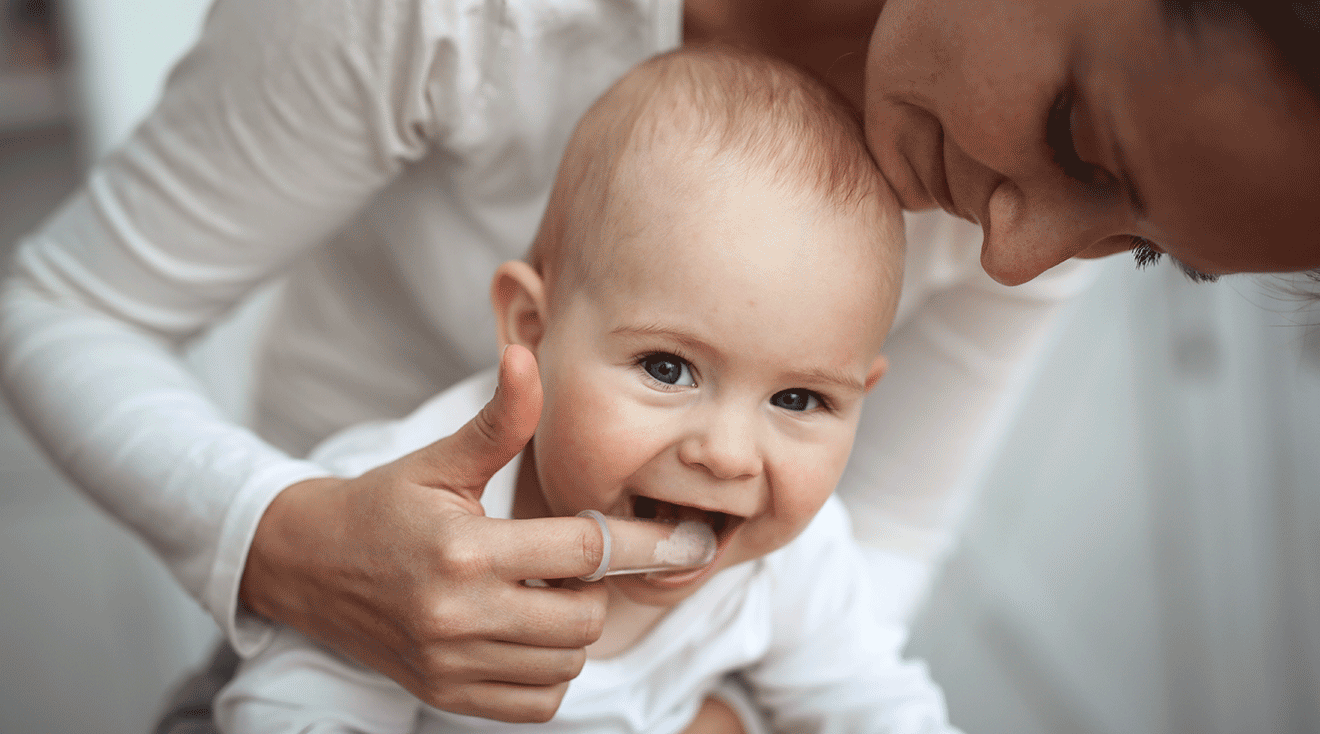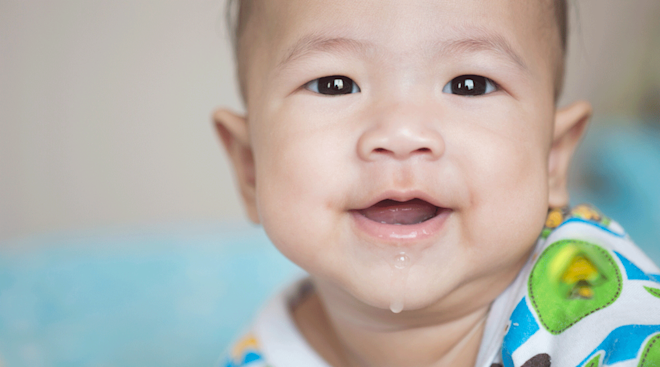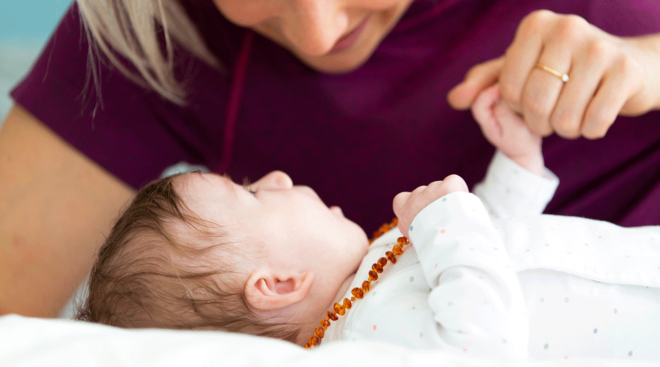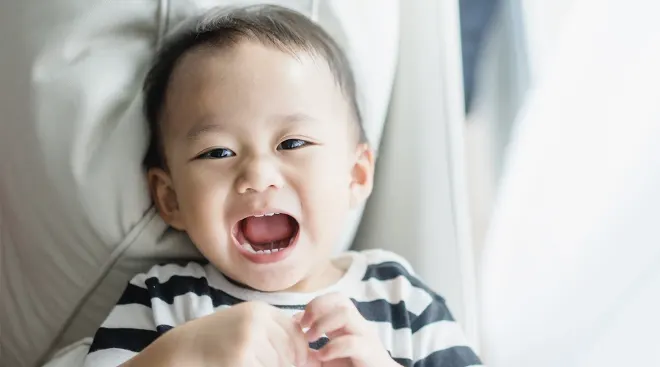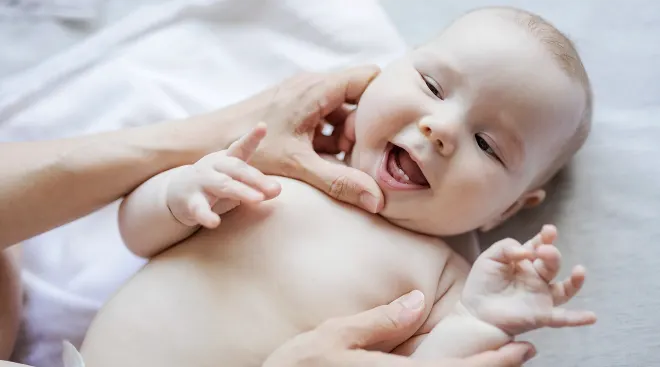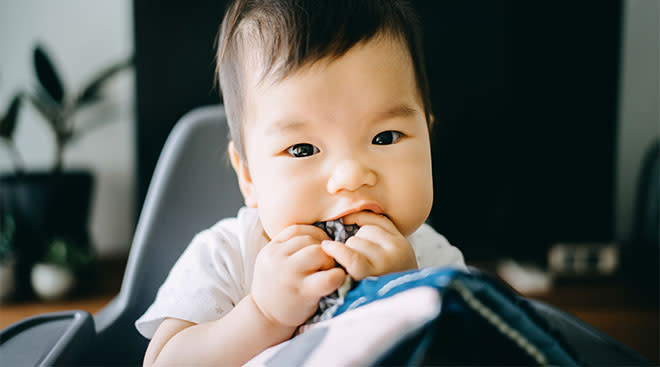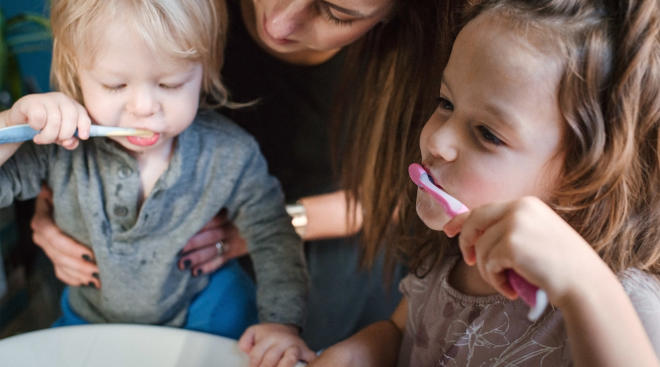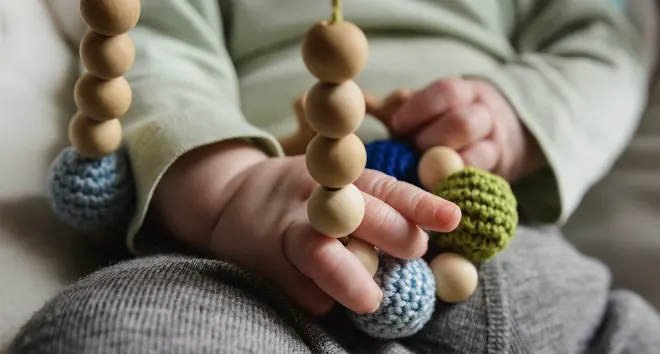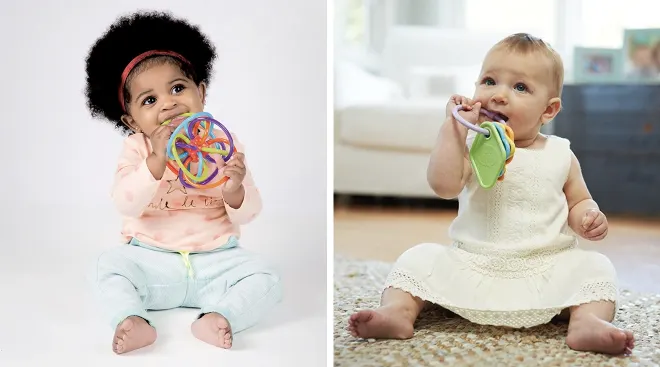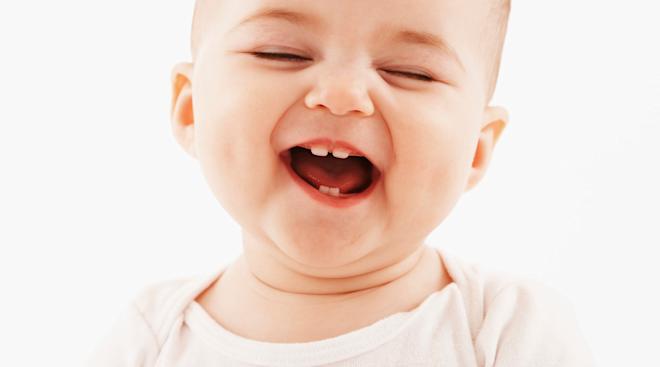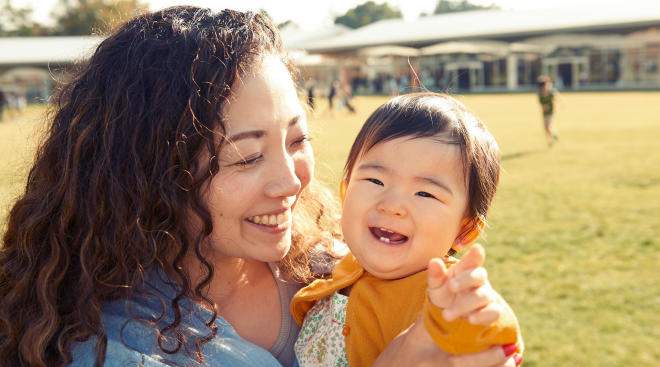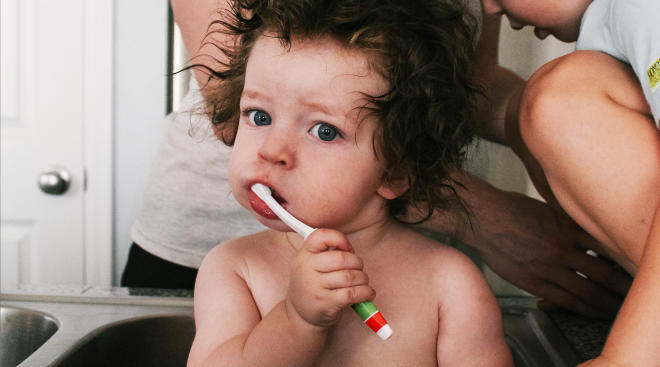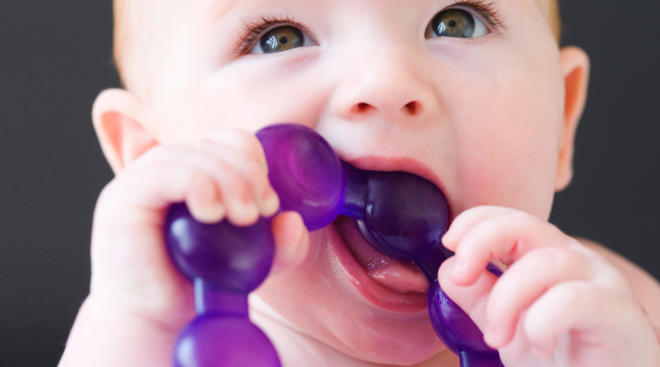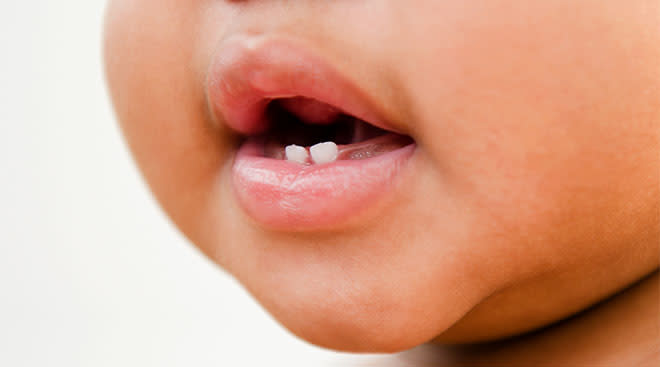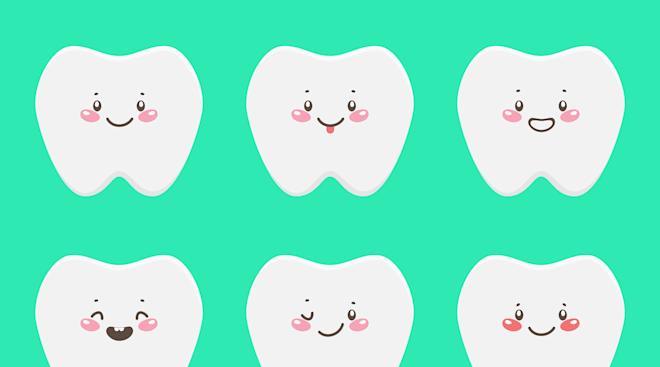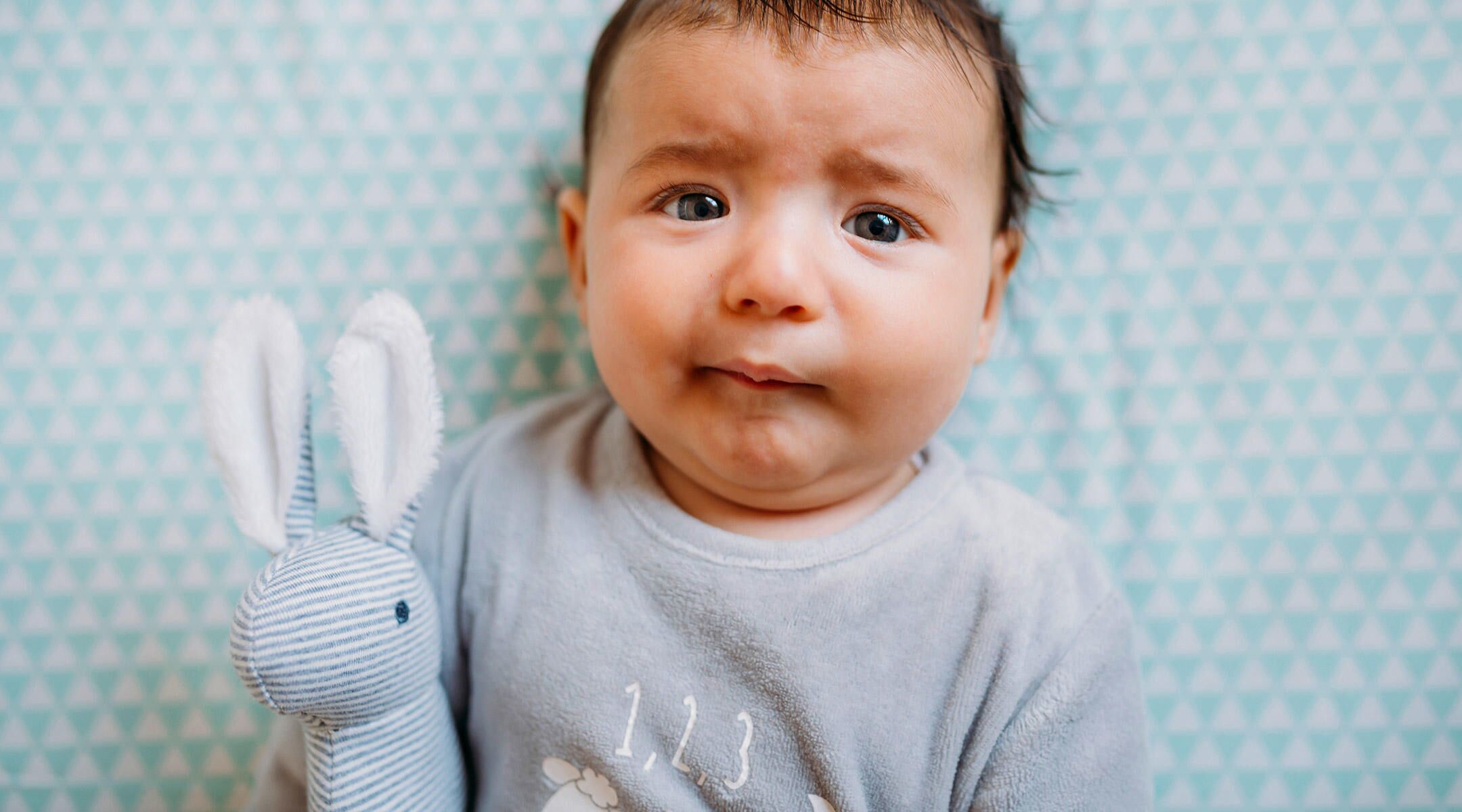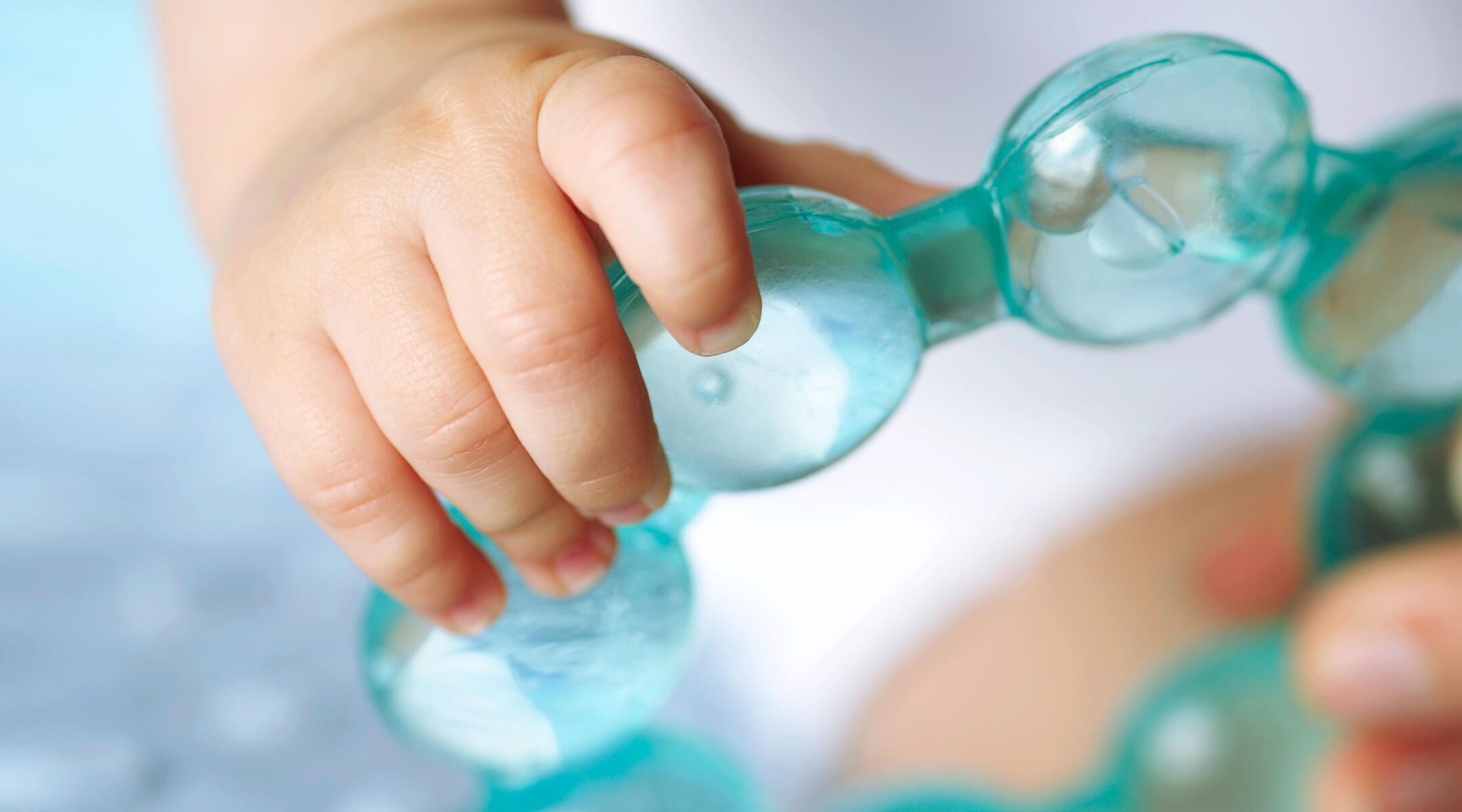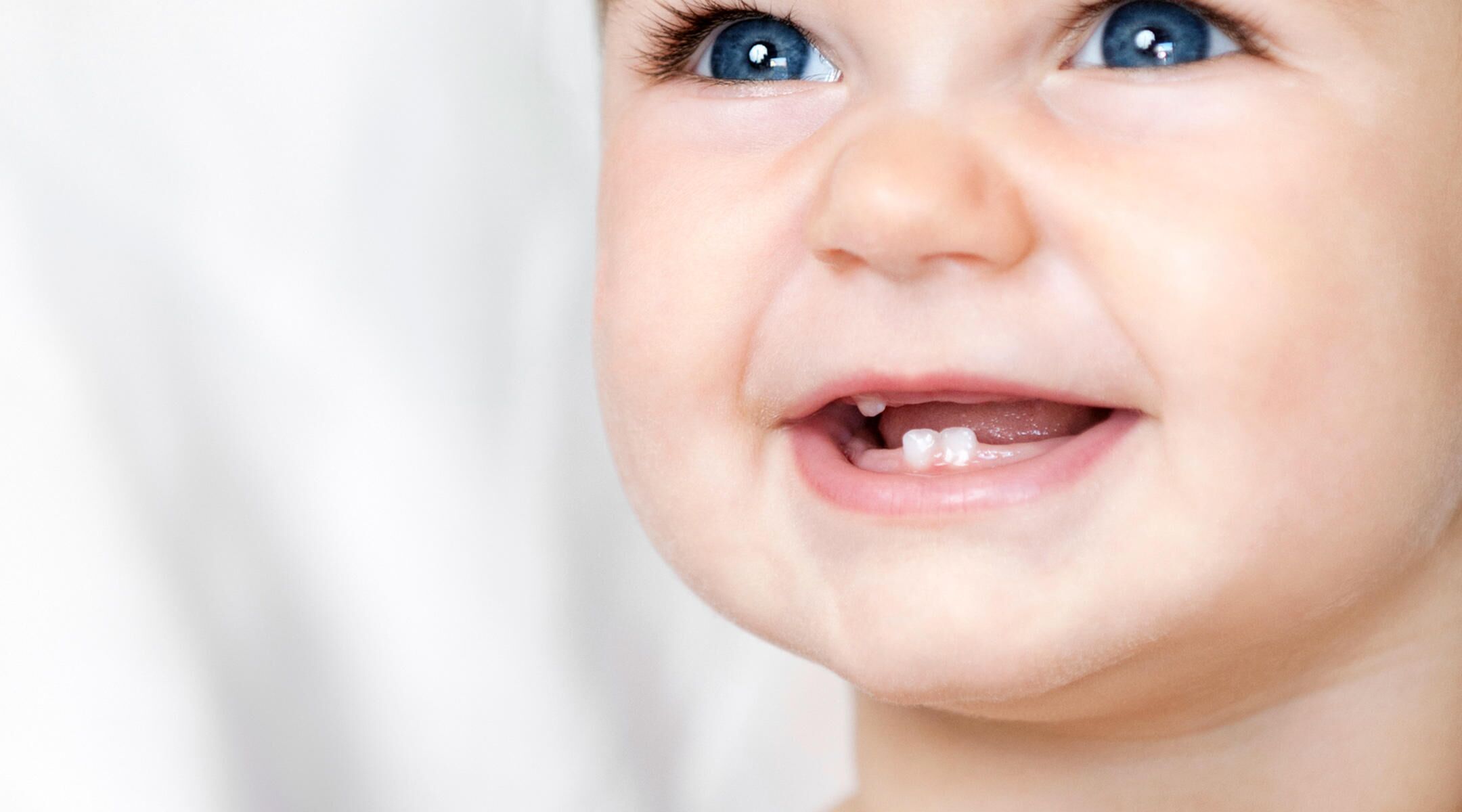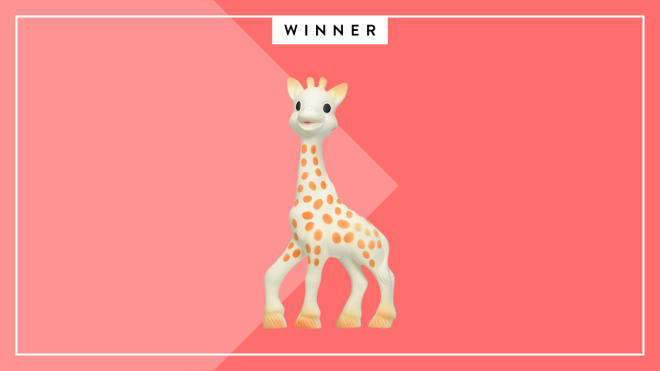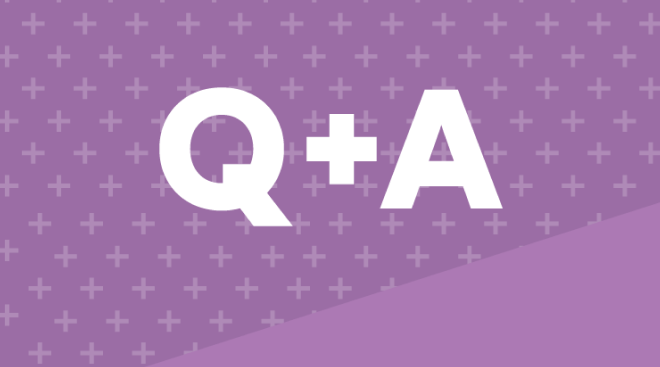Brushing Basics: How and When to Start Brushing Baby Teeth
We’ve always been told to brush our teeth at least twice a day. For most adults, it’s a no-brainer and simply part of our daily routine. But things aren’t as clear cut for babies and their tiny gummy smiles. So at what age should you start brushing their tiny teeth? And do babies need toothpaste? Since babies can’t brush on their own, you’ll need to know the ABC’s of brushing in order to get them crawling down the right path toward dental hygiene—and, FYI, brushing infant teeth is anything but child’s play. It can be overwhelming to know where to start, which is why we turned to experts for some help. Keep reading to learn when to start brushing baby’s teeth, how to do it and ways to make the process a bit simpler.
Since all babies start getting their teeth at different times, there’s no one universal time to start brushing. So when should you start brushing baby’s teeth? As soon as the first tooth pokes through, says Ashley Lerman, DDS, a board-certified pediatric dentist at Firstgrin. This typically happens around 6 months. “Early brushing establishes good oral hygiene habits and helps prevent tooth decay,” Lerman says. In fact, according to the American Dental Association, tooth decay can happen as soon as the first baby tooth comes in, and statistics show it’s the most common childhood disease in America. Needless to say, it’s important to have that baby toothbrush in hand and ready for use.
When to start brushing baby gums
Even if baby hasn’t started teething yet, you should still clean their gums, tongue and the inside of their cheeks, says Denise Scott, MD, an Oklahoma-based pediatrician. But how exactly do you brush newborn gums? According to Scott, “Cleaning doesn’t necessarily mean brushing, as this can be done with a washcloth or a soft, silicone finger brush with just water during their first year.”
Keeping baby’s mouth clean helps to get rid of bacteria and debris after feedings, adds Lerman. It also helps baby get accustomed to an oral care routine and makes them more likely to respond well to toothbrushing when the time comes.
Brushing infant teeth can seem daunting at first, but, as long as you’re gentle and go slowly, you and baby will both be fine. In terms of how to brush baby teeth, it’s not all that different from brushing your own. Scott recommends using a soft, baby toothbrush or a finger brush and brushing in gentle, circular motions to get all the surfaces, baby’s gums and their tongue. To help you get a good view of baby’s mouth and ensure they’re comfortable, she suggests having baby sit in your lap or in their high chair. “It can also be helpful to position yourself behind your infant and have them look up while you brush.”
Be sure to brush baby’s teeth twice a day—especially before bedtime, as this helps get rid of any bacteria and food that’s accumulated during the day, Lerman notes. Once baby has two or more teeth that touch, you can also start gently cleaning in between them.
When to start brushing baby teeth with toothpaste
Wondering when to use toothpaste for baby? While it’s not recommended for brushing baby’s gums, when it comes to teeth, both experts say fluoride toothpaste should be used. Previously, the recommendation had been to wait until age 2 to use fluoride toothpaste, but the American Academy of Pediatric Dentistry now says to use it as soon as baby’s first tooth erupts. Fluoride toothpaste helps strengthen developing teeth because it “attracts calcium and phosphate ions to form a more resistant crystal structure,” Lerman explains. Essentially, this means it makes tooth enamel (the outermost layer) more resistant to acid, decay, cavities and erosion. But keep in mind you don’t need a lot—“only the size of a grain of rice is recommended,” Scott says. “Once a toddler can spit (after age 2 or 3) then a pea-size amount is recommended.” Another thing to consider when you shop? Kids’ toothpastes with flavorings. “I’m not a fan of the kids’ toothpastes since these are flavored to taste good, and eventually you want your child to spit out toothpaste, not eat it,” Scott says.
You probably don’t think twice about brushing your teeth, but, if you put yourself in baby’s booties, it can be pretty scary. After all, “you’re coming at them with an unknown object and shoving it in their mouth,” Scott explains. Luckily, there are a few ways to make baby less afraid:
- Make it a daily routine: While toothbrushing can be an adjustment for baby, incorporating it into their daily routine is one of the best ways to make them comfortable with it. Build it into the mealtime routines and brush their teeth right in their high chair after they’re done eating, Scott suggests.
- Be a role model: Have baby watch you brush your teeth to show them it’s a normal part of daily life, Scott says. Babies are great at copying actions, and seeing you brush your teeth daily may help calm any fears they have. You can also familiarize baby with toothbrushes by giving them one to hold and play with while you actually brush their teeth, she adds. Putting them in front of a mirror while you brush their teeth may help too, as it lets them see what you’re doing.
- Make it fun: Distracting baby by singing interactive songs can make the process a little easier, both experts say. You might also pick a toothbrush with one of baby’s favorite characters or colors to help them get used to it. “Additionally, offering positive reinforcement and praise can encourage cooperation,” Lerman says. “It takes time to establish a routine, but it should be addressed as a non-negotiable in the hygiene routine, similar to a diaper change.”
Frequently Asked Questions
When should baby start seeing a dentist?
While your pediatrician will be checking baby’s mouth and any teeth at their checkups, baby should see a dentist by their first birthday or within 6 months of them getting their first tooth, Lerman says. However, Scott notes they may need to be seen sooner if there are any issues identified. Getting baby into the habit of seeing a dentist early can help set them up for success when it comes to maintaining oral hygiene later on in life.
What happens if you don’t brush baby teeth?
If you don’t brush baby teeth, it could lead to early childhood caries, which is a form of tooth decay that can result in pain, infection and even tooth loss, Lerman explains. In fact, it can also affect your “child's ability to eat, speak, concentrate in school,” as well as their overall well-being, she adds. Plus, lack of oral hygiene early on can also lead to gum disease, which could affect the development of baby’s permanent teeth, Scott notes.
How should I choose a baby toothbrush?
Look for a small toothbrush that’s made specifically for babies and has three rows of extremely soft bristles, Scott says. You’ll also want to look for wide handles that are easier to grip, Lerman adds. If you’re concerned about finding the right toothbrush, ask your pediatrician or dentist for their recommendations.
Knowing when to start brushing baby teeth is only the beginning. After you start brushing baby’s teeth, you won’t be off the hook for a while. It’s recommended you brush baby’s teeth until about age 5 or 6, Scott says. Even at that point you should still supervise to make sure they are hitting all the spots and help them if they’re not. “Parents play a crucial role in safeguarding their child’s oral health from infancy,” Lerman says. We know it sounds tedious, but it’s a small price to pay to ensure good dental hygiene for your kids.
Please note: The Bump and the materials and information it contains are not intended to, and do not constitute, medical or other health advice or diagnosis and should not be used as such. You should always consult with a qualified physician or health professional about your specific circumstances.
Ashley Lerman, DDS, is a board-certified pediatric dentist and the founder of Firstgrin, which provides personalized oral care kits to help caregivers focus on dental health from a young age. She received her bachelor's degree from the Rensselaer Polytechnic Institute and earned her doctorate of dental surgery from Columbia University College of Dental Medicine.
Denise Scott, MD, is a pediatrician with JustAnswer and a pediatric endocrinologist based in Oklahoma with over 30 years of experience. Certified in culinary medicine, Scott also runs the blog Feed Future Health and is the author of Feed Your Child's Future Health: Prevent Disease Before it Starts. She received her medical degree from the University of Texas Medical Branch and completed her residency at the University of Oklahoma Health Sciences Center with a fellowship at the National Institutes of Health.
American Dental Association, Healthy Habits
Centers for Disease Control and Prevention, Children’s Oral Health, April 2022
Learn how we ensure the accuracy of our content through our editorial and medical review process.
Navigate forward to interact with the calendar and select a date. Press the question mark key to get the keyboard shortcuts for changing dates.
































